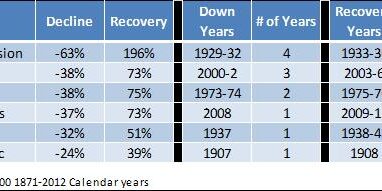Young, Rich, and Retired: An Interview with QCash
I’d like to introduce a fellow Canadian who has accumulated over $1.5 million dollars in net worth at the young age of 36 and has recently retired. Did he inherit his money? Did he obtain a windfall of some sort? How did he do it?
I had the opportunity to interview the young millionaire about these questions and his secrets of success. Without further adieu, I’m proud to present… QCash!
What province do you live in?
Ontario
How old are you?
I turn 37 at the end of this year (xmas eve)
What is your current net worth?
As of yesterday, $1,735,000
Can you break down your net worth by portfolio and real estate?
Real estate:
Principal Residence $254,000 (purchase price in 2000)
Residential Investment $92,000 (purchase price in 1990 $184,000 but I
bought it with a friend, my first investment)
Residential Investment $181,000 (purchase price in 2002)
Portfolio: $1,200,000
When did you start saving and investing?
My first job was at McDonalds. I was 14 and started saving 10% of everything I earned.
When I was in my mid-20’s, I owned three houses (2 and 1/2) and had mortgages on all of them. I had just got a good job in Toronto and was living the high life. I started using credit cards more extensively and was living beyond my means. I hit a point where I honestly didn’t have enough money/credit for the next mortgage payment and it scared me straight. I got my spending back under control and realized I never wanted to get to that point again. I still had a large positive net worth, but my liquidity was zero.
What is your savings philosophy?
I try to allocate a certain percentage of income to savings. Usually I first try to max out my RRSP and then my non-registered savings.
When my wife and I decided we would start a family, we tried to live on just my salary. We did this for almost 15 months (didn’t hit the nail on the head the first time out :-) and my wife was earning a decent living. We saved all her salary, and then banked all her maternity leave.
During your working years, how much did you save / year on average as a percentage of your income?
It would have been about 15-20% on average. Maxed out the RRSP and then used the extra for savings and investing.
Once I started saving, I found it addictive. I resented using any of the funds to pay for anything. I was actually getting quite miserly, but I then started allocating a certain percentage to “mad money” account and then used that to have fun, but didn’t feel I was going to break the bank.
How does your spouse feel about your financial fanatics?
I married someone who shares the same philosophy and approach to saving and spending. She is much more conservative than I and I run all our investment plans through her for her opinion/veto. Having a spouse who is interested in your financial future makes life a lot easier.
What influence did your parents have on your financial knowledge?
My parents split up when I was 7. My dad was always refinancing our home to pay for things. If the house went up in value, he refinanced and spent the money. When my parents split up, my mom, my sister and I moved out.
My mother is not an investment savvy person. She is easily influenced and bails out as soon as a loss is posted. However, it was evident that if I wanted to go to university, buy a bike, car, etc, I had to save my own money to do it. There would be no handouts. (This sounds harsh, my parents were generous, but not with money.)
These circumstances caused me to not ever, ever want to live like that. I decided at a young age that I wanted to be rich.
What was your first investment?
At 16, I bough 100 shares of Laidlaw Class B for $14/share, sold them at $18/share and thought I was the cat’s pajamas of investing. The next time I bought the same shares at $14 only to sell them at $12.00 when I needed money for university.
At 18, my friend and I bought a house together. We had been roommates in University and his sister was a real estate agent. His sister found us a great place that we could rent to 5 other guys and live rent free for the rest of university. His mother co-signed the loan. We still have that house to this day, paid in full.
What was your investment strategy to get you to where you are today?
Most of my investments early on were in RRSP mutual funds (most still are today). I maxed out my RRSP contributions every year and then put the rebate back towards my realestate mortgage.
After university, I bought my own place, and another, only to sell them both when we got married. Those two sales netted me about $90,000 over 10 years.
What are your favorite mutual funds today?
Mavrix Dividend and Income Fund
BMO Dividend Fund
BMO Monthly Income Fund
How do you pick them?
I was looking for guaranteed rates of return. Both the Mavrix and BMO Monthly Income fund have a Return of Capital portion which makes the cash flow much better from a tax point of view. Yes, it means my cost base is adjusted each year I hold them and I will get hit with the capital gain when I sell, but my intention is not to sell them for a long time to come.
If you were to give some financial tips to someone just starting out,
what would it be?
Don’t get emotional about the markets. Do not put all your eggs in one basket. Real Estate can be a great wealth generator, but make sure you know what you are doing…it has a huge PITA factor.
When did you retire?
I stopped working on December 31st, 2006
Is retirement what you thought it would be?
After only three months, I think I am busier now than I ever was :-) In reality, I am enjoying the time with the kids and my wife. We make two days a week family days and do something together. I still volunteer and belong to several committees in Town.
What is your retirement investment strategy?
I am slowly trying to convert my holdings into dividend paying stocks and income generating funds.
Did you have a financial role model? If so, who?
Not really. I read as much as I can.
What is your favorite financial book of all time?
- The wealthy barber, David Chilton
- Stop Working: Here’s How, Derek Foster
- Smart Women Finish Rich, David Bach (this last was for my wife,but I liked it)
Which financial web sites do you read often?
- Yahoo Finance
- Canadian Business Website
- Million Dollar Journey (awww..)
Hope you guys enjoyed the interview as much as I did! Lessons learned? Live below your means and invest your money.
If you guys didn’t notice, QCash’s ACTUAL net worth is WELL beyond the $1.7 million that he tells about because he uses the original purchase price of his real estate assets instead of today’s market value.
Thank you QCash for taking the time to be interviewed. Your story is truly inspirational.
Do you have questions for QCash? Feel free to ask them in the comments.
If you have a financial success story to share, please contact me by clicking this link.
I've Completed My Million Dollar Journey. Let Me Guide You Through Yours!
Sign up below to get a copy of our free eBook: Can I Retire Yet?




Why do you own mutual funds rather than ETFs? You seem to have enough to even bypass ETFs and buy the stocks directly, especially if you’re holding them for many years.
QCash, how about an update. I believe the last was was 07/08? I find both your story and FTs amazing and very inspirational!
It is really important for a wife has same attitude towards money.
[…] this same strategy helped QCash build his million dollar net worth and fund his early […]
With the downturn in the economy and the market down of 30-50%, I’d be interested in an update from Qcash – How have you investments held up? Were you were successful in converting all to dividend yielding recession resistant stocks and just living off the dividend? Has the market forced you to find alternate income sources? Just curious. Thanks
[…] is a young retiree and self made millionaire. He has built his net worth up to $1.5 million by the ripe age of 36. QCash writes the occasional […]
[…] This is another book review from, our favorite millionaire, QCash. […]
[…] asked QCash, the young and retired millionaire, to write a book review on No Hype – The Straight Goods on Investing Your Money. Here is a great […]
[…] 5, 2008 Young, Rich, and Retired: An Interview with QCash | Million Dollar Journey I’d like to introduce a fellow Canadian who has accumulated over $1.5 million dollars in net […]
[…] another update from our favorite young millionaire, QCash. For those of you who are new here, QCash is a self made millionaire who retired at the age of 36 […]